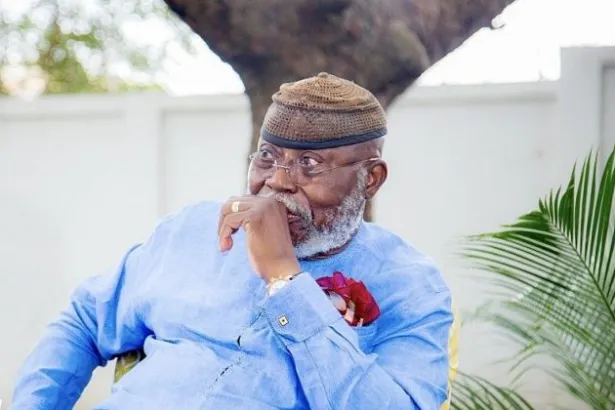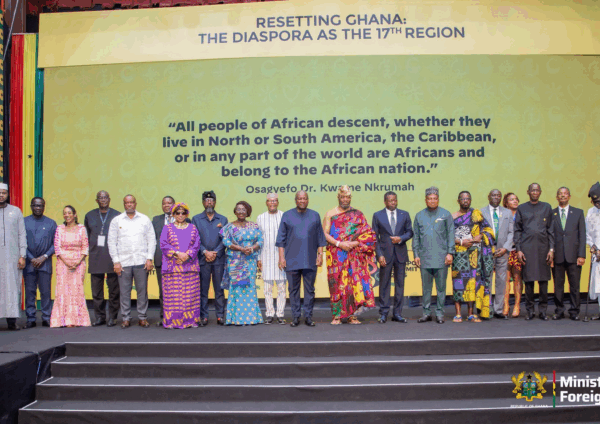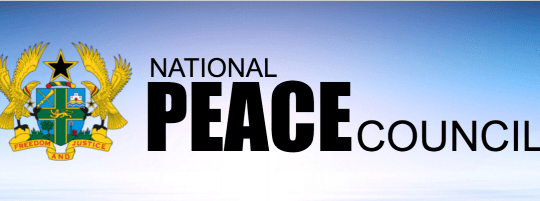Introduction
The Ghanaian political terrain is witnessing comic relief activities across the length and breadth of the nation with protagonists; including some parliamentarians, government ministers and executives of state institutions. Primarily, comic relief seeks to ease, sooth or reduce human stress levels, thus it entertains members of society. What is the rationale of Dr Nyaho Tamakloe (Nyaho’s) statement in the context of Ghana’s democratic governance? Briefly, Nyaho is a seasoned Ghanaian politician, medical doctor by profession as well as a founding member of the New Patriotic Party (NPP). The above statement was made in a recent interview with a Journalist soliciting his opinion on the demonstration by some opposition NPP parliamentarians, demanding the Economic and Organised Crime Office to release Chairman Antwi-Boasiako (Wontumi) upon failure to meet his bail conditions. Nyaho’s statement finds credence and resonance in a plethora of developments transpiring in the corridors of government, state agencies and sections of the public. With that background, this blogpost catalogues some incidents to illustrate as well as justify Nyaho’s premise, urging the government to sanction perpetrators of financial malfeasance.
Using Legal Procedures to Circumvent Punishing Crimes
One endemic challenge confronting Ghana, including successive and current governing regimes, is the over-reliance on legal procedures. Those legal procedures are often weaponised strategically by the executive, government ministers, parliamentarians, agencies of governments, and the so-called well-connected people in society to stifle and frustrate the execution of punishment against potential offenders of state. Here are few examples: The disgraceful actions of some parliamentarians (MPs), which resulted in the broken of chairs, tables and microphones during the vetting of ministers; and, the subsequent blockage of the Speaker’s suspension of those MPs is an illustration of abuse of procedures. Comically, till today, no public announcement has been provided Ghanaians of the investigations and sanctions meted out to those servants of Ghana. Would anyone blame Dr Nyaho if he so described Ghana as a funny state? Of course not. Britain and the United States against whom Ghana benchmarks its democratic governance would have long sanctioned those disgraceful MPs while the investigation is publicly released. That act of self-conceited hubris ensconced in parliamentary procedures not only emboldened those public servants but creates in their minds an illusion that they are special and above Ghanaians and the society. That thinking is false. No president, minister of state, parliamentarian, public agent, including religious ministers of all religions, is above Ghana. They are only servants of the Ghanaian society for which some privileges are accorded them. But that makes them no special, simple.
Often in some Ghanaian circles, there is a misplaced belief or perception that working in certain professions- law, medicine, engineering, or parliament among others- makes an individual a demi-god and untouchable. That false-mindset is deeply ingrained in majority of Ghanaians working in the legal and political spheres of society. But that is a joke to be debunked flatly. The lawyers and parliamentarians are ordinary people plying their trade/profession just like farmers, carpenters and many other professionals to earn their means of subsistence. And those in government are first-class employees of the entire Ghanaian society so they are accountable to the people, and procedural processes must not triumph substantive wrongs and crimes brazenly committed in full view of the public. So, the speaker must urgently publicise the punishment meted out to those parliamentarians soon as practicable.
Another example reinforcing Dr Nyaho’s assertion of Ghana as a funny country is an incident witnessed by this author in Takoradi. Specifically, on 23rd April 2025, I travelled with some friends on the Takoradi-Tarkwa road. Along this major road are located two major institutions- The 2nd Infantry Battalion of the Ghana Armed Forces and the St Mary’s Senior Secondary School. Shockingly and in disbelief, the entire community and most especially the 2nd Infantry Battalion Barracks were in abject darkness due to the so-called “dum-sor” crisis. For once, I recognised that the problem of Ghana and the continent of Africa is creatively self-inflicted. How is that a vital security institution like the 2nd Infantry Battalion Barracks would be affected by power outage is not only beyond comprehension but a manifestation of a country lacking direction and perhaps serious leadership. Anyone with the barest knowledge of national security would fathom the dangers of a military barracks without light/power let alone the opportunity it affords external enemies to compromise the nation’s stability. Yet, the financial scandals revealed at the Electricity Corporation of Ghana (ECG) coupled with several procurement thefts/breaches are being treated with kid gloves. It is largely in Ghana and African states that most government institutions and agencies are constantly saddled with financial thefts week by week, month by month and year on year without serious prosecution to retrieve those monies from the embezzlers and thieves. Instead of prosecuting the thieves, the mantra has always been investigations and procedures are being followed and within weeks and months – every state action vanishes. Dr Nyaho is right indeed. Ghana is a funny country. Contrast this with Britain in 2010. In that year, some MPs including David Cameroon (Cameroon) were found to have claimed allowances in excess of £10- £1,200 and were sanctioned severely while some received jail terms. Significantly, one MP who had claimed £2 for an adult film she hired to watch with her husband was forced to pay back together with Cameroon who paid back immediately an amount of £300 thereafter. The comparison between Britain and Ghana in this case is apt because Ghana models its democratic architecture after the former; and, while the former is economically and politically rich, financial misappropriations are dealt with stringently without regard to the status or party affiliation of the culprit. However, in Ghana, those who steal, embezzle or misappropriate state funds are protected and pampered under fictious procedures while the substantive law and crimes are ignored. Furthermore, the major road in front of the 2nd Infantry battalion down to the St Mary’s Senior Secondary School has been under construction during the erstwhile Nana Addo Regime till Mahama’s second term with little progress, impeding the socioeconomic activities of the people and that region.
While the security forces are key to the development of Ghana in every facet of socioeconomic fabric of the citizenry, it is expected that they uphold the laws by conducting themselves professionally. Unfortunately, some of the security forces, especially the police service, engage in activities which endanger public safety as well as undermine the respect and confidence the public repose in them. For example, on 28 April 2025, this author saw a Police Toyota vehicle, with a registration number GP 904, driving dangerously on the hard shoulder along the Osino-Anyinam road, scarring off on-coming vehicles which in turn threatened civilians walking beside the road. This dangerous act is often compounded by indiscriminate use of sirens to deepen congestion and traffic problems in cities and town centres, manifesting irresponsible behaviour of public officials. This blogpost is not against the use of sirens by the police service and other security agencies engaged in performing emergency duties and legal obligations; however, the misuse of sirens to achieve personal frivolous agenda is the protest of this post.
Final Remarks
Nyaho’s statement reflects a deep obsession among government officials and agencies fixated on procedures to divert and dilute substantive crimes committed by deviant parliamentarians and public servants to circumvent the application of common sense in holding public servants to account. The attempt to fetish procedures by public servants will undermine confidence in Ghana’s fledgling democracy; and, create opportunities for the citizenry to resent the government to promote a democratic system which generate accountable stewardship of the nation. Without accountable strategies, financial misappropriation and embezzlement by public officials would persist to distort national fortunes thereby distorting growth and development. Until those challenges are addressed patriotically, Dr Nyaho’s characterisation of Ghana as funny country stands.




